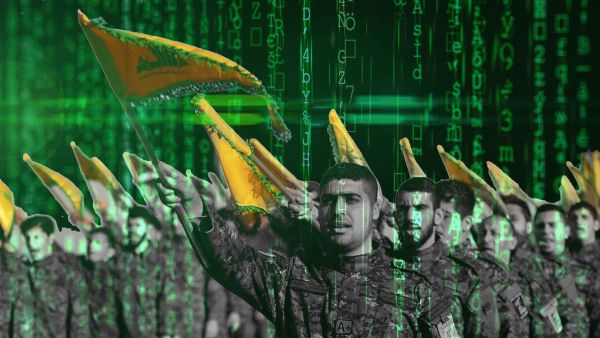An exclusive investigation carried out and published by two Telegraph journalists only two days before the massive Beirut blast has revealed detailed information about programs set up by the Lebanese-based Iranian-backed militia Hezbollah. The programs trained individuals in Lebanon and Iraq on using bots; in order for them to manage online campaigns to spread fake news and serve their political agendas.
Exclusive: Thousands of individuals from across the Middle East have passed through online disinformation training camps run by Hezbollah in #Lebanon.
— Wil Crisp (@bilgribs) August 2, 2020
A new investigation from myself & @suadadalsalhy:https://t.co/Ewq5E2aFnn
A thread on the threat posed by Iran-backed Hezbollah training cyber armies & spreading fake news. @POTUS @kayleighmcenany https://t.co/0wJL50vINy
— Jack Flynn #WeFightBack (@GoJackFlynn) August 2, 2020
While the investigation has traced Hezbollah's development of online skills since 2012, the most recent deadly events in Lebanon have come to prove the efficacy of the propaganda machine that has been in the work for at least 8 years.
According to the report, Hezbollah's 'electronic armies' consisting of supporters from across the world, particularly Middle Eastern countries, have been receiving training in Beirut to circulate misinformation via online outlets, "inciting violence and unrest in the region."
Through interviewing a number of people from Lebanon, Iraq, and Iran, the newspaper found out that training involved developing skills in digitally manipulating photographs, managing a bulk of fake social media accounts, creating appealing videos, in addition to tools that help them avoid being blocked by Facebook, to facilitate their mission of spreading misinformation.
Iranian regime’s Hezbollah terror proxy is running social media propaganda training. The misinformation is used to sow political unrest and violence across the region. https://t.co/lJjTgOGnSY
— Avi Kaner (@AviKaner) August 3, 2020
Fake news should be strictly curbed..
— Flatten the curve!! Social distancing!! (@navadharma) August 3, 2020
Non violence beliefs at the grassroots level amongst everyone would help humankind so much..
The report also points out that these programs have brought a lot of financial revenue for Hezbollah, as "Iranian authorities generously fund training aiming at spreading the Iranian influence across the Middle East."
Two days after the investigation was published last week, the Lebanese capital witnessed the first-of-a-kind explosion at Beirut port, killing at least 160 people and injuring more than 6000 others, fueling an already critical political scene.
The camp highlights #Iran's malign influence in the region, and the lengths it is willing to go to spread its revolutionary ideology around an increasingly fractured Middle East, analysts say.#FakeNews pic.twitter.com/mJrPWeo1FF
— Heshmat Alavi (@HeshmatAlavi) August 2, 2020
Following the blast on the 4th of August, thousands of Lebanese people took to the streets they have been protesting at since October 2019 demanding political change and an end to corruption in the country.
Mass protests also demanded the resignation of the Hezbollah-supported government, which offered the perfect chance for Hezbollah's bots to get into action; launching the hashtag #الشعب_معك_يا_حسان (The people stand with you Hassan) in reference to the Lebanese PM who has just announced the resignation of his cabinet last night.
Why is this # trending ??#الشعب_معك_يا_حسان pic.twitter.com/542NQZDYKv
— Nermeenbr (@nermeenbr) August 10, 2020
WHY IS THERE A #الشعب_معك_يا_حسان TREND
— LaDïz ?? (@LaDeeeez) August 10, 2020
Watching the hashtag climbing up the most trending in the country, Lebanese online commentators, largely angry at Lebanese politicians, questioned the genuineness of the support their former PM was receiving; especially as they don't find it reflected within their actual social circles, suggesting that it's a fake support campaign managed by bots.
Lie, deny and deflect. Not surprising.
— Garmyani ☀️ (@Garmyani83) August 2, 2020
News of the Hezbollah propaganda army is not the first in the Middle East, as governments of several Arab countries have been accused of following the same tactic to "win" the social media popularity game and push their own political agendas, including Saudi Arabia, UAE, and Egypt.







